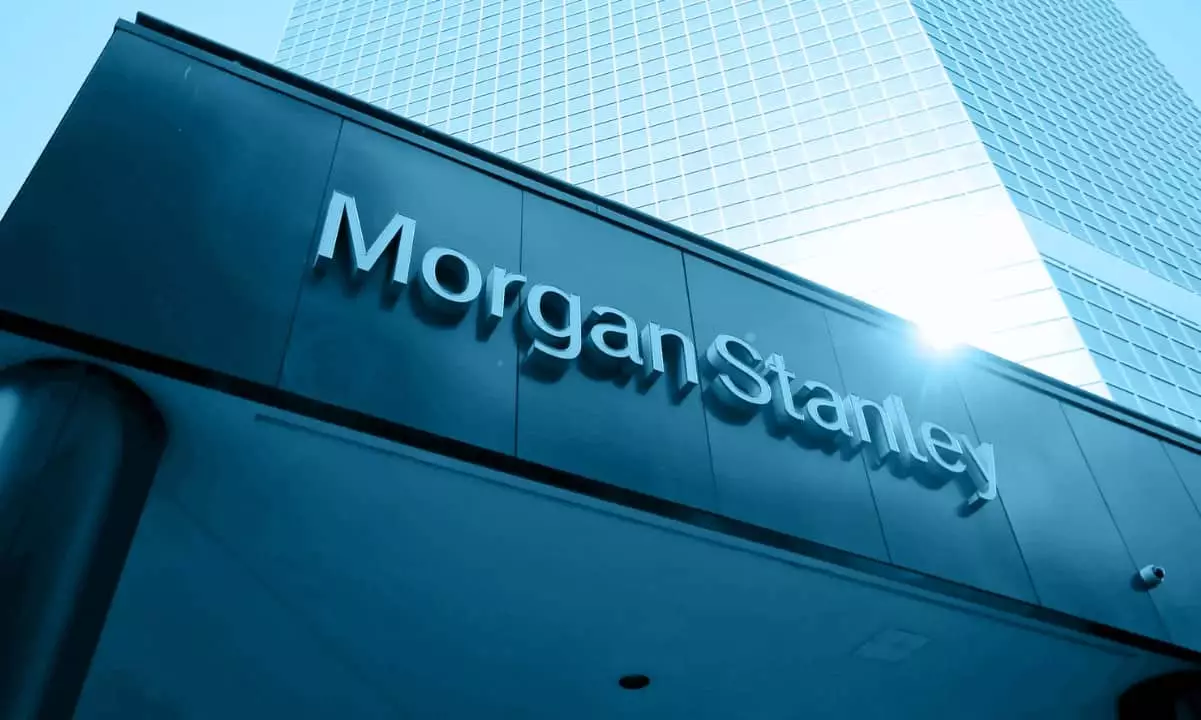In recent years, the crypto industry has witnessed a significant transformation, particularly in its relationship with traditional financial institutions. Speaking at the World Economic Forum in Davos, Switzerland, Morgan Stanley’s Head of Digital Asset Strategy, Andrew Pick, revealed an important shift: his bank is actively collaborating with US regulators to explore entry into the cryptocurrency market. This development is not an isolated incident but a reflection of a larger trend within the financial world, where institutional adoption of digital assets is gaining traction among major players.
Historically, cryptocurrencies faced skepticism from established financial firms. Once dismissed as instruments of crime and folly, assets like Bitcoin and Ethereum were viewed with scorn and derision. Major banks such as Morgan Stanley and JP Morgan were particularly vocal about their skepticism, often undermining the value of digital currencies. However, the narrative has shifted dramatically over the last few years, as these institutions are now recognizing the potential of blockchain technology to transform the landscape of finance.
During the interview with CNBC, Pick emphasized Morgan Stanley’s cautious approach to this burgeoning market. His comments highlighted the critical importance of regulatory compliance, stating, “For us, the equation is really around whether we, as a highly regulated financial institution, can act as transactors.” This careful navigation reflects not only the bank’s commitment to adhering to regulations but also illustrates the balancing act that many financial institutions must perform as they delve deeper into the world of cryptocurrencies.
Morgan Stanley’s proactive stance is noteworthy. In 2021, the bank became one of the first in the US to provide Bitcoin custody services to high-net-worth clients, signaling its willingness to embrace digital assets early. Furthermore, it has positioned itself strategically amidst the ongoing buzz around Bitcoin ETFs, making a significant investment of $269 million in these products last year. This indicates a forward-thinking approach to integrating cryptocurrencies into its offerings, which could set the stage for broader acceptance across the financial landscape.
While Morgan Stanley actively pursues opportunities in the crypto space, not all traditional banks have embraced this wave. Companies like JP Morgan, led by Jamie Dimon, remain skeptical, opting instead to hold back from full-scale participation. However, the competitive edge is shifting. Institutions like BlackRock have entered the fray, closely following Morgan Stanley’s footsteps, which suggests a possible tipping point where the larger narrative of crypto acceptance may prevail.
As these long-held barriers dissolve and institutional actors flock towards blockchain and digital currencies, the implications for the crypto ecosystem could be profound. The growing investment and engagement from reputable financial institutions may enhance the legitimacy of cryptocurrencies, positioning them as viable assets rather than mere speculative instruments.
The evolution of the relationship between traditional finance and cryptocurrency is evident. As banks like Morgan Stanley actively work towards incorporating digital assets into their services, the industry could potentially witness an influx of institutional capital. This movement may reshape market dynamics, establishing a new foundational era driven by institutional backing. While challenges remain regarding regulation and risk management, the ambition to harness the power of blockchain technology points towards a future where cryptocurrencies are not only accepted but are an integral part of the global financial ecosystem.

